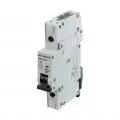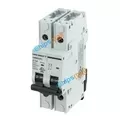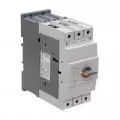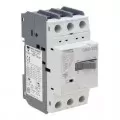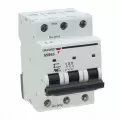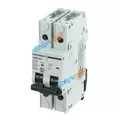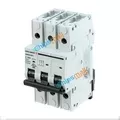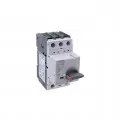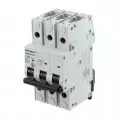OUTLINE:
Understanding Symbol for A Circuit Breaker
 2326
2326Have you ever glanced at your electrical panel and wondered about that mysterious symbol? It's a common sight in many households, yet often overlooked or misunderstood.
Understanding the symbol for a circuit breaker is crucial for ensuring the safety and functionality of your electrical system.
Deciphering this symbol can provide valuable insights into how your circuit breaker operates and how it protects your home from electrical hazards.
By unraveling the meaning behind this symbol, you can gain a deeper understanding of your electrical infrastructure and take proactive steps to maintain its integrity.
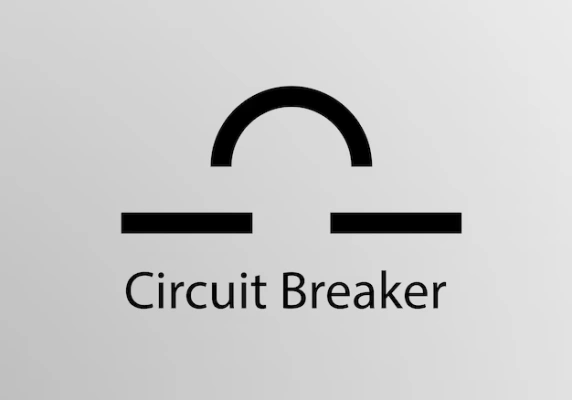
Image Source:Freepik
What Are the Symbols for A Circuit Breaker
The symbol for a circuit breaker is a graphical representation used to denote the presence of a circuit breaker within an electrical system or device.
It typically signifies the circuit breaker's function of interrupting the flow of electrical current in a circuit when necessary to protect against overcurrent, short circuits, or other electrical faults.
This symbol can vary in appearance depending on the manufacturer and type of circuit breaker, but it commonly resembles a stylized switch or a representation of a circuit being interrupted by a line or break.
Understanding the symbol for a circuit breaker is important for identifying its presence within an electrical system and recognizing its function in ensuring electrical safety.
The Purpose of the Symbol for A Circuit Breaker
The purpose of the symbol for a circuit breaker is to visually represent its function within an electrical system or device.
This symbol serves as a universal indicator to users, electricians, and technicians that a circuit breaker is present and fulfills the crucial role of interrupting the flow of electrical current when necessary.
By recognizing and understanding this symbol, individuals can identify the location of circuit breakers within electrical panels or equipment and comprehend their role in safeguarding against overcurrent, short circuits, and other electrical faults.
Essentially, the symbol for a circuit breaker serves as a visual cue for electrical safety, helping to prevent potential hazards and protect both people and property from electrical accidents or damage.
Beyond its basic function as a visual identifier, the symbol for a circuit breaker serves several important purposes:
Safety Awareness: It raises awareness about the presence of circuit protection within an electrical system, reminding users of the importance of electrical safety.
Functional Understanding: By recognizing the symbol, individuals can understand that the associated device is not just a simple switch but a critical component responsible for managing electrical flow and protecting circuits from damage.
Troubleshooting: When troubleshooting electrical issues, the presence of the circuit breaker symbol can help identify potential areas of concern or points of intervention within the system.
Standardization: The symbol contributes to standardization across electrical schematics, plans, and diagrams, facilitating clear communication among professionals in the field.
Compliance: In building codes and regulations, the symbol may be mandated as part of labeling requirements, ensuring that electrical installations meet safety standards.
Preventive Maintenance: Understanding the symbol prompts users to perform routine checks and maintenance on circuit breakers, ensuring they remain in proper working condition to effectively protect against electrical hazards.
Emergency Response: In the event of an electrical emergency or outage, knowledge of the circuit breaker symbol can aid in quickly locating and addressing the issue, minimizing downtime and potential risks.
How to Read the Symbol on A Circuit Breaker
Reading the symbol on a circuit breaker involves understanding its various components and what they represent. Here's a breakdown:
Main Body: The main body of the symbol typically resembles a stylized switch or a representation of a circuit path with a break. This indicates the circuit breaker's ability to interrupt the flow of electrical current.
Switch Position Markings: If present, markings such as "ON" and "OFF" indicate the positions of the switch. These markings show whether the circuit breaker is in the closed (conducting) or open (non-conducting) position.
Amperage Rating: Some circuit breakers may include numerical or alphanumeric symbols indicating their amperage rating. This is the maximum current the circuit breaker can safely handle before tripping.
Voltage Rating: Similarly, voltage ratings may be indicated to specify the maximum voltage the circuit breaker is designed to handle.
Manufacturer Logo or Branding: Circuit breakers often feature the manufacturer's logo or branding somewhere on the device, providing information about its origin and potentially its quality or specifications.
Additional Markings: Depending on the specific model and features of the circuit breaker, there may be additional markings indicating special characteristics, such as compatibility with certain types of circuits or applications.
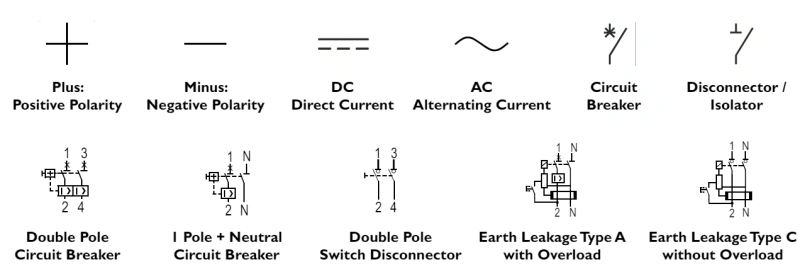
Image Source:ElectricalTechnology
Typical Symbols for A Circuit Breaker
There are various types of symbols used to represent circuit breakers in electrical diagrams, schematics, and equipment labeling. Here are some common types:
Standard Switch Symbol: This symbol resembles a stylized switch and indicates the presence of a circuit breaker. It typically includes markings to denote the "ON" and "OFF" positions, representing the ability to control the flow of electrical current.
Circuit Interrupting Symbol: This symbol depicts a circuit or electrical path being interrupted by a line or break. It signifies the circuit breaker's function of breaking the electrical connection when there is an overload, short circuit, or other fault.
Thermal Circuit Breaker Symbol: A thermal circuit breaker symbol may include additional elements such as a coil or bi-metallic strip, representing the thermal mechanism used to trip the breaker in response to overcurrent conditions.
Magnetic Circuit Breaker Symbol: A magnetic circuit breaker symbol may feature a coil or magnet symbol, indicating the magnetic mechanism used to trip the breaker in response to short-circuit currents.
Hydraulic-Magnetic Circuit Breaker Symbol: Hydraulic-magnetic circuit breakers combine hydraulic and magnetic mechanisms for tripping. The symbol may incorporate elements representing both mechanisms, such as coils and fluid symbols.
Amperage Rating Symbol: Circuit breakers often include symbols indicating their amperage rating, which represents the maximum current they can safely handle before tripping.
Voltage Rating Symbol: Symbols may indicate the circuit breaker's voltage rating, specifying the maximum voltage it is designed to withstand.
Trip Characteristics Symbol: Some circuit breakers may include symbols indicating their trip characteristics, such as fast-acting or time-delayed trips

Image Source:Electrical Technology
Final Verdict
Deciphering the symbol for a circuit breaker is not merely a matter of visual recognition; it represents a crucial aspect of electrical safety and system functionality.
By understanding the various symbols used to represent circuit breakers, individuals gain insight into the device's function, specifications, and operating parameters.
From the basic switch symbol to more intricate representations of trip mechanisms and ratings, each symbol conveys essential information for the safe and effective operation of electrical systems.
Whether interpreting electrical diagrams, equipment labeling, or schematic drawings, a clear comprehension of circuit breaker symbols is fundamental.
Ultimately, this understanding empowers users, technicians, and electricians to navigate electrical systems with confidence, ensuring both safety and reliability in electrical installations.

Disclaimer: The views and opinions expressed by individual authors or forum participants on this website do not represent the views and opinions of Chipsmall, nor do they represent Chipsmall's official policy.

share this blog to:


